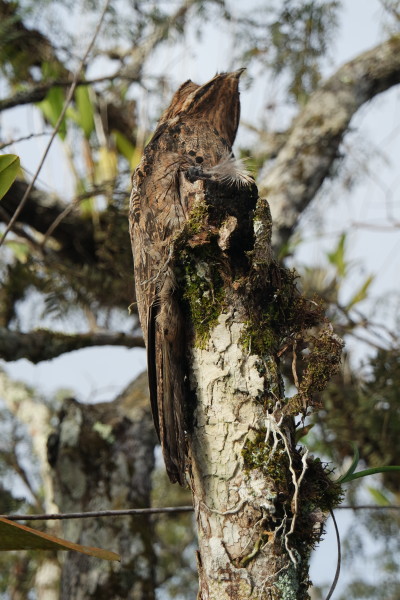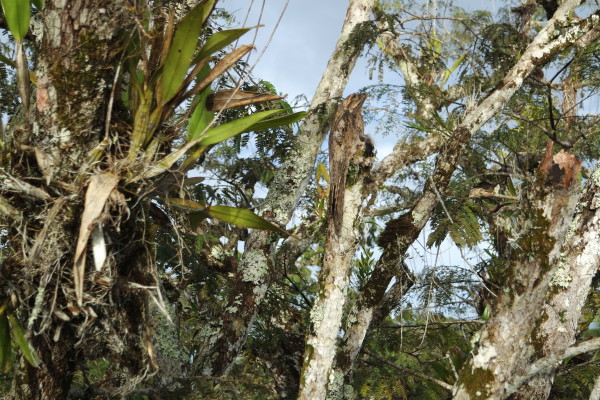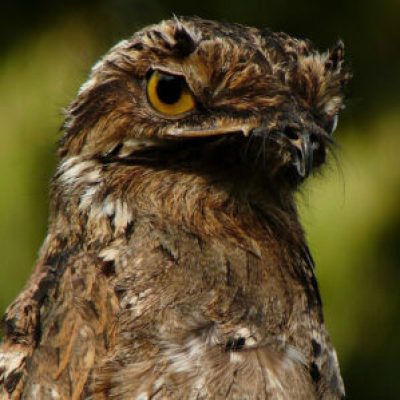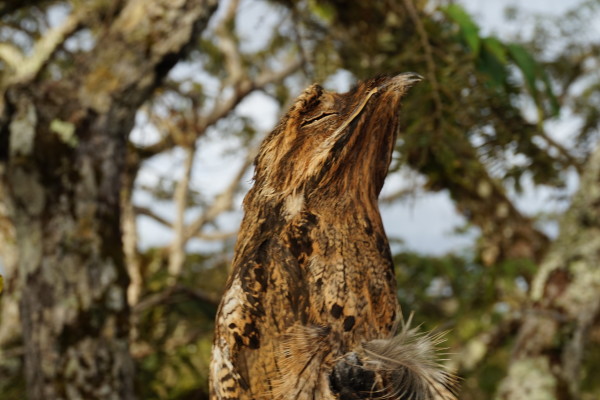THE LEGEND OF THE POTOO:
A NOCTURNAL CALL FROM THE PAST
Let’s immerse ourselves in the fascinating world of the Potoo, also known as the Urutaú. This mysterious bird not only has an impressive name, but an equally impressive way of life. With its sleek grey, black and brown plumage, the Potoo is a master of camouflage, hiding on dead branches during the day and becoming almost invisible. As the sun sets and dusk falls, the potoo comes to life. Its large eyes open, ready to spot nocturnal flying insects such as moths. With its beak wide open, it glides silently through the darkness, stalking and capturing its prey with amazing skill.
But the potoo is not only a fascinating hunter, it is also the protagonist of a moving legend told by the Shuar, an indigenous people of the Ecuadorian Amazon. This story is deeply rooted in the culture and spirituality of the Shuar, and explains the melancholy call of the potoo that can be heard at night as the moon rises.
Once upon a time, a husband and wife got into a heated argument. The man was angry with his wife, Aóho, because she had not prepared enough pumpkins for dinner. In his anger, he climbed up a vine to get away from her. But when Aóho followed him with a basket full of pumpkins, he cut off the vine in frustration. The woman fell to the ground and all the pumpkins fell with her. That day the Shuar discovered the existence of the pumpkin.
In the grief and pain of this tragic event, Aóho turned into a bird while her husband ascended into the moon. Since then, every evening when the moon is in the sky, the woman calls out to her husband with a heart-rending cry. The Indians say her call sounds like “aishirú, aishirú”, which means “my husband, my husband”.
This is how the Potoo’s mournful song echoes in the darkness, an echo of love and loss that touches people’s hearts. The next time you hear the nightly call of the Potoo, think of the legend of Aóho and her husband and be enchanted by the magic and melancholy of this story.




